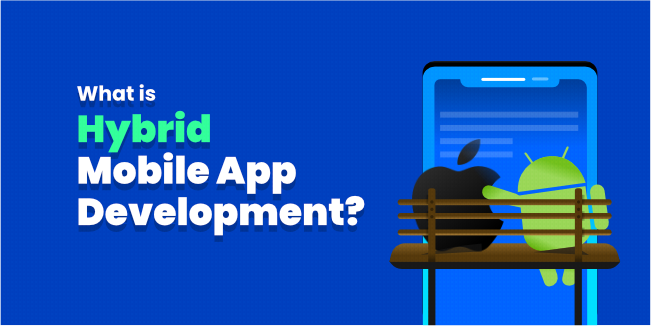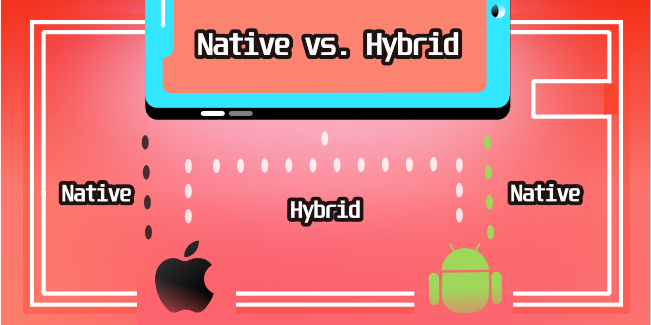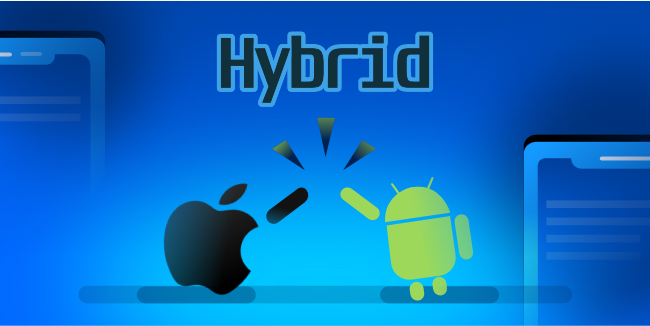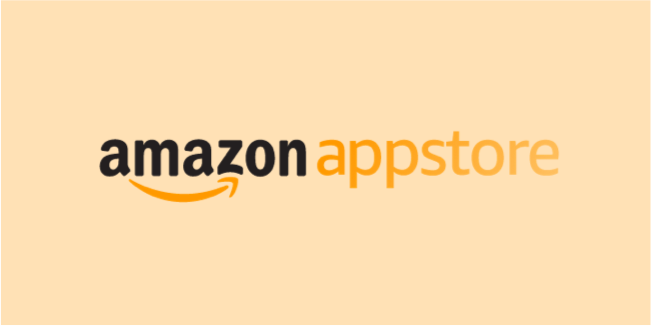Mobile Development
Business
mobileapp
mobileappdevelopment
hybridmobileapp
hybrid
What is Hybrid Mobile App Development? Everything You Need To Know

The popularity of hybrid app development is growing in the realm of technology. Its appeal stems from the fact that it allows applications to be rapidly developed, costing less and working on various platforms and operating systems without having to start over.
As hybrid mobile app development requires an appropriate approach and specific knowledge, you may be looking for an offshore outsourcing company to help you create a hybrid mobile app. Choosing the right outsourcing partner is not easy, so we have prepared an article, "Choosing the right software partner - guide (2022)", from which you will learn what to look for in a potential contractor for your project.
Even though hybrid apps are not as popular as native apps, they have some advantages that might make them a better choice for you.
What is hybrid app development, and why might it be right for you? This piece will discuss hybrid application building and why it may suit you. We'll also go through the various phases of creating a hybrid app and which libraries are ideal.
What is Hybrid App Development?
Hybrid app development is a strategy for creating an app with one project that may run on all required platforms, such as Android, iOS, Windows, and Linux.
Hybrid software is quite popular since it makes it easy for developers to write a single code base that will operate on all platforms. Except for certain app features (the most important one is the UI, which users expect to see tailored to their preferred platform), developers must write the code once and reuse it when developing apps for any other target platform.
Hybrid apps are in high demand because they are both simpler to develop than native applications and allow you to expand your business's reach across multiple platforms, including the internet. Two indisputable facts are propelling the demand for hybrid applications:
Businesses find hybrid mobile app development extremely appealing since they can simultaneously participate in the mobile industry on all major platforms.
Native and Hybrid Apps - Differences

Hybrid development allows you to develop your application once and then deploy it to various platforms, including iOS, Android, and Windows. It eliminates the time spent by developers working on several projects for each platform.
Developing apps with a hybrid mindset can be easier since the frameworks get updated regularly. This way, developers can take advantage of specific features of certain platforms while maintaining a familiar development environment.
However, this causes the code to be larger as a whole because it has to consider all the different types of devices and operating systems the app is made for.
On the other hand, native application development is designed specifically for one platform and usually requires more development time. However, native apps' performance typically trumps hybrids because they have been specifically optimized for their target platform.
It is all about your specific requirements and what you want your app to accomplish. If developing for only one platform is sufficient, or if your product's performance is a crucial trait, you should probably build a native application.
Suppose you're looking to develop multiple platforms simultaneously and want a budget-friendly way. In that case, hybrid app development could be your best bet. With this method, however, keep in mind that a few features might not run as smoothly on some platforms as they would on others.
Why Use Hybrid Mobile App Development?

Hybrid application development affords users many advantages, chief among them increased flexibility deriving from various technologies.
With Proof, you're not restricted to any one platform or technology. You have the freedom to find the best tools for your project from an array of different options.
A hybrid app also has the potential to reach a larger audience because it can work on multiple devices. It is critical if you want to target people who don't have access to the newest technology.
Finally, hybrid apps are generally more responsive and faster than typical progressive web apps, resulting in a better user experience.
It's Simple
Hybrid applications are simpler to create than native apps because there is no need for a developer to be fluent in each platform's language.
Hybrid app development languages are usually built on web technologies (HTML, CSS, and JavaScript), although C# is another popular option.
Good Maintenance
Hybrid apps allow developers to maintain their codebase across multiple platforms while expending little extra effort. Updates can be rolled out quickly and easily using a single backend for all the apps. As a result, developers save valuable time that would otherwise be spent on creating separate backends for each platform they support.
Great Performance
Hybrid apps are often lighter than native apps since they all execute within the same process and utilize the same memory space. A hybrid app may be more responsive than a native-developed application, depending on how it's built.
Cross-Platform Compatibility
The following applications run on a variety of platforms simultaneously. As a result, they do not have the same restrictions as applications developed specifically for one platform. It makes them perfect for organizations wanting to reach out to all of their target consumers.
Cost-Effective
Hybrid apps are typically less expensive to produce than native apps, which can add up quickly if done by a one-person or small team. Businesses may create hybrid apps at a fraction of the cost required to develop a native app using hybrid web technologies.
UX
By reusing components and design elements across platforms, hybrid mobile apps can create a more consistent user experience. Also, since users will be exposed to the same visuals no matter their platform, this can help improve an app's brand image.
If apart from creating the code and development plan, you are also interested in creating the appropriate graphic design for your application or web app, you've come to the right place. We at mDevelopers have been specializing in UI/UX development for over 12 years, so we will be happy to make your project look fresh, modern, and functional.
Market Boost
Developing a hybrid app is often quicker than developing a native app, especially if you want your app to work on multiple platforms. It is because much of the code can be reused.
What is Wrong With Hybrid App Development?

Although there are many advantages to hybrid app development, it also has drawbacks. Here are a few of the most critical disadvantages you should take into account:
Update Issues
Although hybrid app development frameworks are adaptable and have multiple purposes, they don't always update as quickly as a new feature is released on a platform. It can take some time for developers to implement the newly added features into the hybrid app framework.
Before developing any platform-specific technology, be sure your framework of choice supports it.
Lower Performance and Larger Size Than Native Apps
Although these platforms are typically quick and frequently compete with native applications in terms of performance, a native application will almost always be more efficient.
When you utilize a hybrid framework for your app, it will always come with some overhead costs. It happens because libraries and other code bits are used to call native code instead of calling it directly as a native app can.
Another disadvantage of external libraries is that they increase the app's size when installed.
Best Hybrid App Development Frameworks
With so many hybrid app frameworks on the market, it can be tough to decide which one is right for your needs. Each hybrid app framework has different benefits and drawbacks, so you must select the one that will work best for your project.
React Native

React Native was first released by Facebook in 2015 and is a multi-platform mobile app development framework built on React. It's an open-source Javascript platform that allows you to construct multi-platform user interface components with JSX, which are then linked to native code and converted to Android and iOS native views.
The views are bridges that allow JavaScript code to communicate with them. The code runs in a JavaScript thread.
Flutter

The Google-developed Flutter framework is a software development kit (SDK) that runs on the Dart programming language. It can provide apps to mobile, web, and desktop platforms and embedded devices.
It's also one of the most popular tools on this list. It has seen wide use from developers owing to its rapid development speed and the capacity to employ a wide range of widgets, many of which follow Google's Material Design standards.
Ionic

Ionic is a hybrid mobile app framework for hybrid mobile apps that utilizes HTML, CSS, and JavaScript to create mobile apps with a mix of both web and native features. It's quite flexible and easy to use, making it even more appealing to front-end developers who are already comfortable with the hybrid app development framework.
Apache Cordova

Apache Cordova is a cross-platform, open-source mobile development framework that enables you to create mobile apps using standard web technologies. Apps developed with Apache Cordova are rendered within the WebView of the native application wrapper.
Unity

Unity is a versatile application framework that can be used for developing games and other graphics-intensive applications such as VR and AR experiences. It uses C# as its programming language.
It may be used to create mobile and web apps, but they won't have the same native feel as the other choices on this list. However, if you want to develop an app for entertainment purposes, it is undoubtedly the finest option.
Best Hybrid Apps
Some of the best hybrid apps available today include:
Facebook

Facebook is one of the most popular hybrid applications available. Because it was created with React Native, it can run on any platform and supports iOS and Android devices.
Twitter

Twitter is a social media web app on various platforms, including iOS, Android, and Windows Phone.
Pinterest

Pinterest is a photo collection tool that has amassed over 100 million users worldwide. The service uses hybrid technology to take advantage of different devices while keeping its codebase light and easy to maintain.
Spotify

This example proves you can create a hybrid application while prioritizing the best user experience possible, no matter the platform. The service launched in 2008 and has 100 million users worldwide.
Airbnb

Hybrid technology created Airbnb, a popular travel and vacation rental business. It may be used on almost every platform, including iOS, Android, and Windows Phone. The company also worked with Apple to develop an app for the Apple Watch.
Uber

This ride-hailing service links people looking for a taxi with drivers of rental cars. It allows users to easily book transportation, monitor the car's position, and even pay online using this app.
UberEATS

Uber recently launched their food delivery service, called UberEATS. It allows users to order meals from local restaurants and deliver them wherever they are.
Amazon App Store

Use this program to browse for goods on Amazon.com, get product information, read reviews, and place orders. It is another app store, theoretically similar to the others, but with one significant difference: it's linked to your Amazon business. Everyone loves data synchronization, so you have everything you need in one location here.
WixApp

Even if you don't know how to code, this free app will allow you to create your responsive website in minutes. Wix is an excellent tool for creating websites and web apps.
Stages of Hybrid App Development
Hybrid apps are made up of both web technologies and native features. Hybrid apps may be developed using platforms like PhoneGap or Ionic to render user interface components, making them look as fluid as a native app on iOS or Android.
There are four main stages for developing a Hybrid app:
Pre-Development
In this stage, you must establish if hybrid app development is the optimal solution for your project. Furthermore, you must investigate the best technology stack and decide which tools and hybrid mobile app frameworks will work most efficiently.
If you do not know how to choose the right technology stack, we have prepared an article about it. "How to choose a tech stack for your project?" is a compendium of what you need to know when choosing a tech stack. Check it out to make your hybrid mobile app development even more effective.
Development
It is where you'll be writing the code for a hybrid app. You'll also need to use a cross-platform tool like PhoneGap or Ionic for building hybrid mobile apps. It includes your UX/UI preparation, architectural development, and functionality development.
Testing
By testing your hybrid app development project (probably a prototype) in this stage, you can avoid any future issues when releasing it to the public. Test both the frontend and backend of your project for errors.
Deployment
At this final stage, you publish the hybrid mobile application to a specific platform or multiple platforms so end-users can access it. You'll either need to submit your hybrid app development project to app stores for Android and iOS devices or maintain them on web servers.
Maintenance
Hybrid app development is an ongoing process. With time, you'll need to modify your hybrid mobile application as required by your company's needs or provide new versions with improved capabilities.
Being a hybrid app developer, you'll need to perform bug fixes and upgrades on projects that are already in existence. You must also closely monitor new development trends and technologies, so your competition doesn't surpass you.
Conclusion
Creating an application using the hybrid app frameworks is demanding but also gives excellent results when done right, so it's worth knowing all the principles of this technology.
It is not easy to fight giants such as native development. Still, hybrid app development has advantages that convince many people interested in creating their own applications.
And if you can't or don't want to create but want to entrust someone with creating a mobile application, it's best to go to a custom mobile app development company like us. We at mDevelopers approach each client individually and establish close cooperation so that the final product is the same as you dreamed. Contact Us! We offer free consultations with our experts.